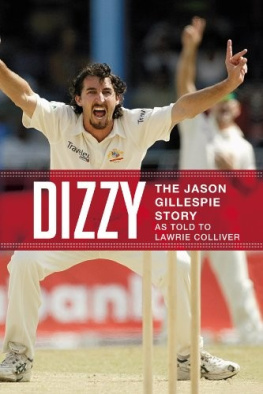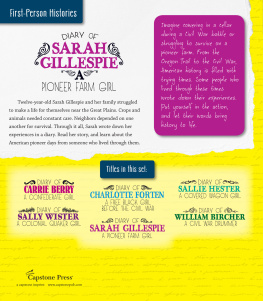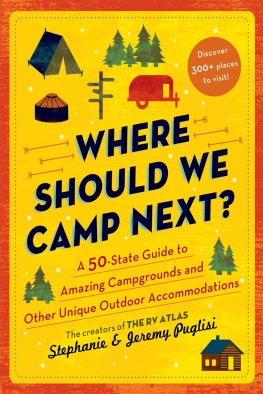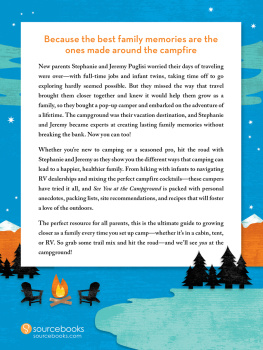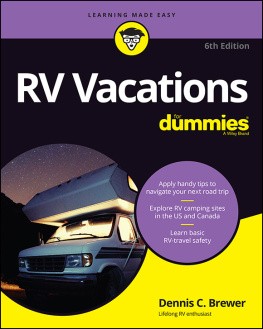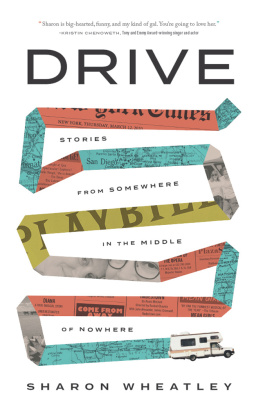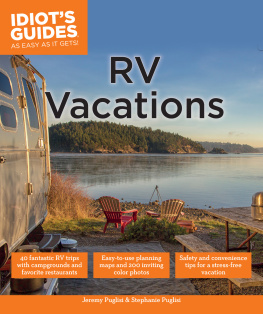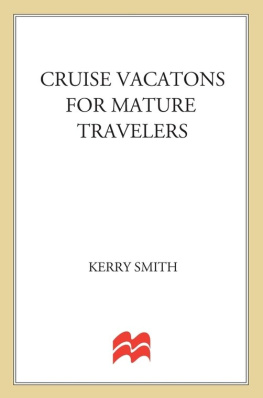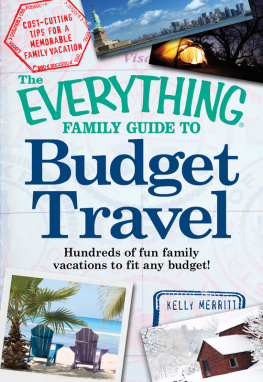

ALSO BY CURTIS GILLESPIE
The Progress of an Object in Motion
Someone Like That
Playing Through
Crown Shyness

Copyright 2012 Curtis Gillespie
All rights reserved. No part of this work may be reproduced or transmitted in any form or by any meansgraphic, electronic, or mechanical, including photocopying, recording, taping, or information storage and retrieval systemswithout the prior written permission of the publisher, or in the case of photocopying or other reprographic copying, a licence from the Canadian Copyright Licensing Agency.
Library and Archives Canada Cataloguing in Publication
Gillespie, Curtis, 1960
Almost there : the family vacation, then and now / Curtis Gillespie.
Ebook 978-1-77102-030-5
1. Family vacationsHumor. 2. Gillespie, Curtis, 1960 Family.
I. Title.
GV182.8.G54 2012 306.4'8125 C2011-908272-1
Editor: Janice Zawerbny
Cover design: Michel Vrana
Cover images: Folded Map: Jami Garrison / dreamstime.com; Vintage neon: Darla Hallmark / dreamstime.com; Retro Diner Interior: jgroup / istockphoto.com; Sunny Beach: Trout55 / istockphoto.com; Canola Road Sunset: Ben Goode / dreamstime.com; Toy Car: Michel Vrana
Published by Thomas Allen Publishers,
a division of Thomas Allen & Son Limited,
390 Steelcase Road East,
Markham, Ontario L3R 1G2 Canada
www.thomasallen.ca

The publisher gratefully acknowledges the support of The Ontario Arts Council for its publishing program.
We acknowledge the support of the Canada Council for the Arts, which last year invested $20.1 million in writing and publishing throughout Canada.
We acknowledge the Government of Ontario through the Ontario Media Development Corporations Ontario Book Initiative.
We acknowledge the financial support of the Government of Canada through the Canada Book Fund for our publishing activities.
11 12 13 14 15 5 4 3 2 1
This book is dedicated to my mother, Pat Gillespie,
for reasons too numerous to itemize (all of them good).
Contents

I N THE SUMMER of 1973, my parents announced our family was going to take a trip. A trip, mind you. They didnt use the word vacation because, I suspect, it implied things they werent willing to commit to, such as our safety and comfort. The plan was that in mid-December eight of usmother, father, and six children aged three to thirteen, five boys and one girlwere going to pile in our faux-wood-panelled Ford Country Squire station wagon and drive through the middle of the continent from Calgary to Mexico City, then turn around and come back along the west coast. Six weeks. Eight thousand kilometres. Through the high snowy passes of Montana and Utah. The emptiness of Arizona. The heat of the central Mexican desert. I still find this next fact hard to square with a memory of sane and loving parents, but once we got past Utah we were going to camp. Every night in a three-room eighty-pole oilskin canvas cave that when rolled up was roughly the size and weight of a small refrigerator. It took four of us two hours to put up and almost as long to take down, and had once caused my father to suffer a perforated hernia. I loved that tent, but I hated it, too.
We set off on a cold and gloomy December morning. The canvas tent and most of our luggage was roped to the roof of the car and covered with a tarp. The trip started as every trip did, whether it was to the local mall or Mexico Citya jostling for seats, superior position, bragging rights. No single seat was really that much better than any other, but we fought over them because they were something to fight over; usually the fighting was nothing but shoving and pushing, though often it escalated into rabbit punches, eye pokes, head butts, and nut chops. The monarchs throne was the space between the middle row of forward-facing seats and the set of facing jump seats at the back; the throne wasnt very comfortable, but there was room enough for just one child, which made it the only spot really worth having (and this was long before the days when seat belts were mandatory; in fact, I dont remember if that old wagon even had seat belts). At thirteen, as the oldest child, I believed myself entitled to the throne, but I was slow getting to the car and when I tried to rough up my brother Keith for the spot, he and my brother Bruce ganged up on me and gave me a double nipple twist. I ended up in the jump seats with my sister, Janine. Sitting perpendicular to the direction in which the car was moving always made me feel queasy. I hated the jump seats.
We were smart enough kids, the six of us (though not nearly as smart as we thought we were), but we had zero notion that by travelling in this way in 1973 we were personifying the zenith of a significant historical trend. In fact, we were living in the last great gasp of the family car trip as a major North American cultural expression, an expression crank-started into life fifty years earlier by the introduction of automobile travel as a recreational pursuit and brought into full flower after the Second World War when the buying power of the middle class increased such that cars were widely available and families could afford them. Families could also afford to take a vacation; prior to the war, workers rights began to crystallize, and legislated paid vacation time, once unheard of, was becoming commonplace. The combination of paid holidays and being able to purchase a station wagon one could load to the roof (and above) was, in many ways, the starting line of what we now understand as the family vacation.
Which was what we were up to, even though, as mentioned, we were probably already living in the latter stages of the automobile trip as the predominant family vacation mode. It was history itself we were taking part in, though it was hardly history of a Hegelian stamp, since you might say the jury is still out on whether the automobile will ultimately be seen as progressive in humanitys run. Not that wed have known, or cared, anything about Hegel, history, progress, or the zenith of the automobile trip; we just figured we were going on a really long drive. My hope, though (no matter where history comes down on oil and the automobile), is that there will always be room for the road trip in the family vacation. Its so rich in possibility. I know that driving to Mexico and back created something larger than a simple collection of experiences and destinations for our family; it created memories and moments so strong, so singular, that we saw our family as unique. It gave us a vision of the larger family project at work, particularly upon reflection in later years, of course. There wasnt much conscious articulation of it when we were all sitting around watching TV a few months later, as if twelve-year-old Bruce said to nine-year-old Conor, Hey, that trip really helped me understand and put into words the nature of our family dynamic, dont you agree? Yet, at some level, it did precisely that; spending six weeks in a car driving to Mexico and back became a key component in the shared baseline knowledge of what we were as a unit, of how we related to one another, of how we were moving together through timereflections that have stayed with us as a family decades later.
Next page

